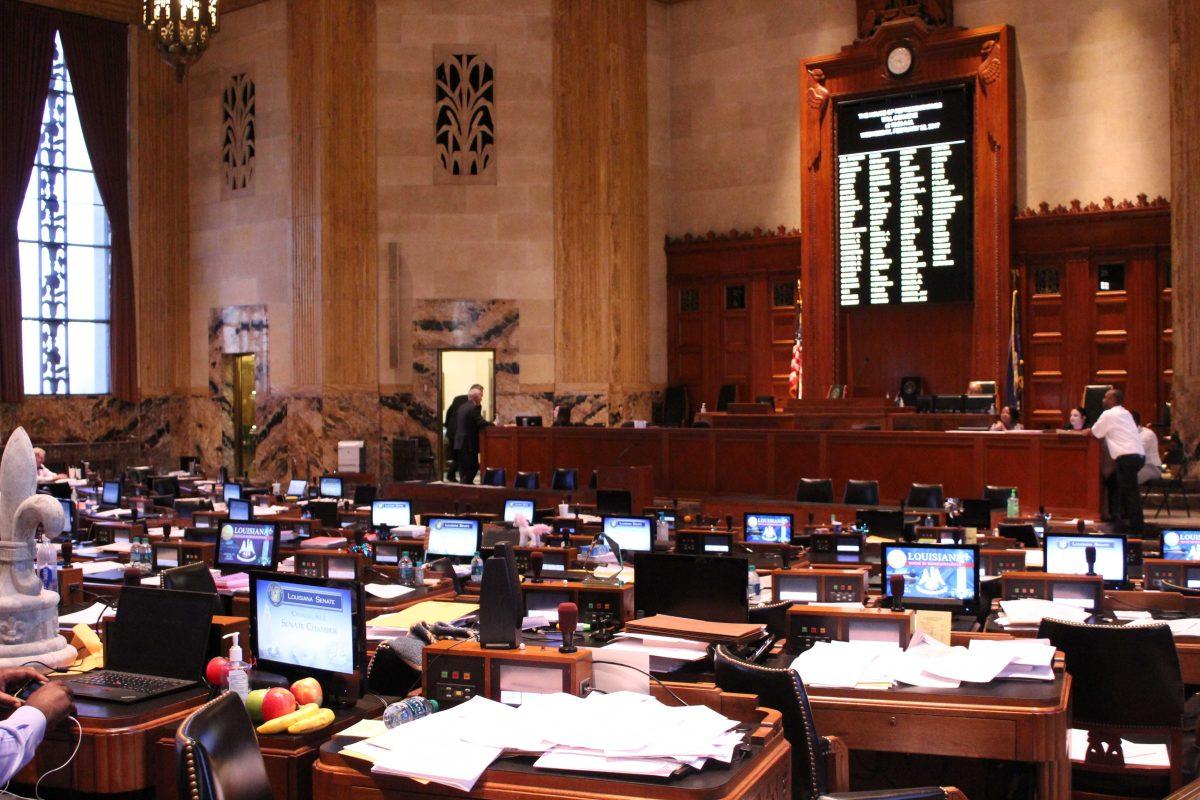With hours to spare, the Louisiana Legislature Wednesday reached a compromise to close a $304 million mid-year deficit — the 15th such deficit in the last nine years.
The deficit was shored up through a combination of $99 million in Rainy Day Fund appropriations, budget shuffling between departments and approximately $82 million in cuts to departments. The cuts will fall on state-funded hospitals, the Department of Education and the State Police, among others.
For the first time in years, higher education was spared additional cuts.
The compromise was reached through quid quo pro legislation, with House Republicans allowing for Rainy Day Fund spending following Senate passage of House Speaker Taylor Barras’ House Concurrent Resolution 1. The resolution called for the state treasurer to evaluate methods for drawing money from statutory dedications to meet state debt obligations.
HCR 1, which Barras, R-New Iberia, intends to implement for Fiscal Year 2017-18, would draw 3 percent from dedicated funds funneled through the Bond Security and Redemption Fund for FY 17-18, equal to roughly $96 million based on initial projections. This money would be used to pay debt obligations in lieu of using general fund dollars and would free up that money for other purposes, Barras said.
Despite concerns from senators and Gov. John Bel Edwards’ administration, the resolution passed the Senate in a 29-7-2 vote in an effort to secure House support for Rainy Day appropriations.
House Republicans had voiced displeasure with Edwards’ request to tap the Rainy Day Fund coming into the session, and the passage of HCR 1 was key to relieving Republican fears, said Rep. Cameron Henry, R-Metairie.
“Would I prefer not to use any Rainy Day? Of course, but that wasn’t an option,” Henry said. “Members were comfortable because of the Speaker’s resolution. That passing was the key piece of the whole thing. With that passing, members got comfortable that we were actually making changes for the future that will make our lives easier.”
The Rainy Day appropriations, contained in Senate President John Alario’s Senate Concurrent Resolution 2, passed in a 92-9-1 vote Wednesday afternoon.
Rep. C. Denise Marcelle, D-Baton Rouge, said reaching a compromise was difficult as her Republican counterparts wavered on the amount of Rainy Day use they were willing to allow. At first they were staunchly holding to zero, then they wanted to cap at $90 million, and so on, she said.
Marcelle said she felt the Senate’s steadfastness in advancing the Alario-backed Rainy Day Fund legislation was key to brokering an agreement.
“I think the Senate sent a very strong message that they’re about moving the state forward,” Marcelle said. “It’s not about party, it’s not about any particular group. It’s not about white, it’s not about black, and I think they sent a really clear message that they weren’t having it.”
Alario, R-Westwego, said cooperation between the Senate and the House was good and discussion behind closed doors, which drove many of the ultimate legislative decisions, was friendly and respectful. Each group was unwavering in certain demands and the fact that neither side achieved 100 percent of their aims is a good sign of negotiation, he said.
At times the debate was strained and contentious. Alario said he wished the special session could have wrapped sooner, but ultimately democracy needs to take its course and debate needs to be thorough. Henry said what may seem a long time to those on the outside looking in is essential to ensuring legislators are knowledgeable about the material they are voting on.
Alario said the relationship between the Senate and the House is improving as each side better understands the other’s prerogatives and communication begins to flow more freely.
“I think in the end democracy worked and I’m glad everyone cooperated,” Alario said. “We found out we can have that open communication with one another, and I think we’re getting to trust each other, which is important.”
Edwards echoed Alario’s sentiment, saying in a post-session press conference he was reassured by the level of cooperation in light of the upcoming regular session April 10, and the difficult decisions lawmakers will have to face to resolve a nearly $1.6 billion fiscal cliff.
Despite the challenges ahead, Edwards said he remains hopeful.
“I’m more optimistic about the future of our state every single day,” Edwards said.








